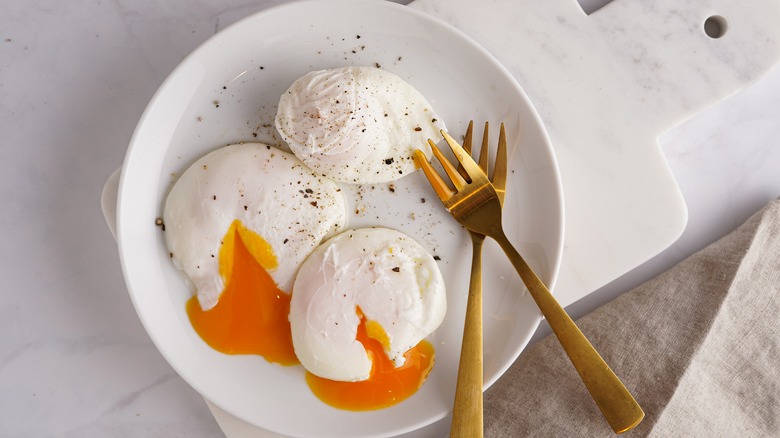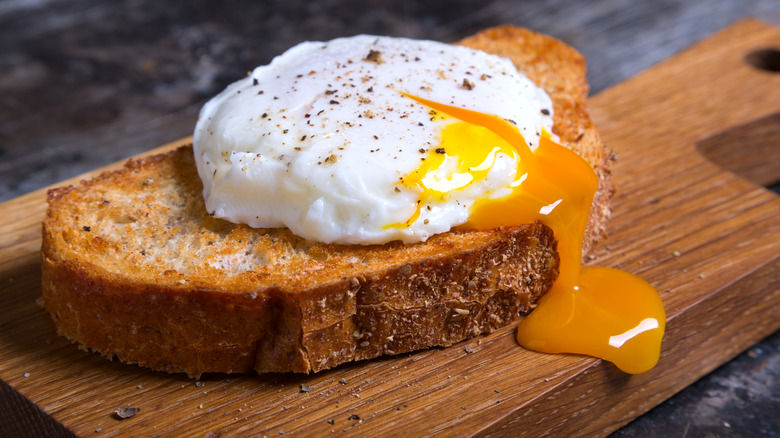Why You Need The Freshest Eggs For Poaching
Poaching is perhaps one of the trickier methods to master when cooking eggs, but that doesn't mean it's not possible. While poaching eggs does take some finesse and practice, there are some tips and tricks that chefs and home cooks alike use to get a perfect poach. With a little knowledge imparted from the pros and a bit of practice, poaching eggs can be a breeze.
According to Gordon Ramsay, one of the most important secrets to achieving a perfect poach is in the egg itself. Fresh eggs have more stable whites which helps make poaching easier. The eggs that have been sitting in your fridge for a while are likely to have runnier whites. That's not a problem for scrambling, but for poaching, the whites won't hold their shape in the water and instead will fan out in stringy strips, leaving the yolk a little lonely. When fresh eggs with stable whites are dropped into the hot water, they'll hold their shape around the yolk much better, resulting in a beautifully poached egg. When the whites stay stable, encasing the yolk, this also makes for a better cook: The yolk will remain runny instead of becoming overcooked while allowing the whites time to cook thoroughly without being runny.
Tips for perfectly poached eggs
Using fresh, high-quality eggs is the basis for a good poach. But there are some other tricks and methods that will help you achieve a poached egg that could turn the heads of top chefs. First, crack your egg into a small bowl or ramekin before dropping it into the pot. This will help you avoid any shell pieces and ensure that you're not dropping an egg with a broken yolk into the pot. You can also drop the egg into a small mesh strainer before transferring it to the pot to ensure there aren't any watery whites that'll mess with your poach. This is an especially helpful trick if you're using less-than-fresh eggs.
Next, prep the water so it's just right. Too hot and you'll overcook the egg, too cool and it won't set properly. Aim for a simmer for the ideal temperature. Adding a splash of vinegar to the water tweaks the pH balance, which helps the egg whites to set quickly. Lastly, you want to be sure not to overcook your eggs. Unlike boiling eggs in their shells, poaching takes hardly any time at all — only a few minutes. It might take a little practice to learn exactly how long to leave your eggs in the water, depending on the elevation you're cooking at and what kind of stove and pot you're using, but it typically takes anywhere from two to four minutes for a perfect poach.

